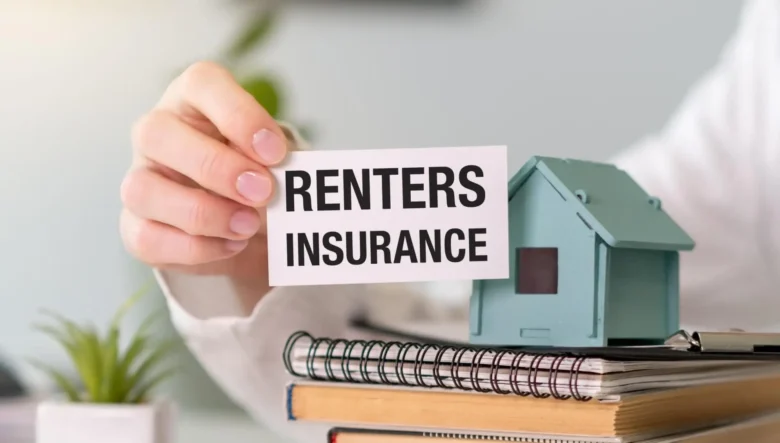Your first rental property will bring excitement and new responsibilities. Renters insurance is one of the most important decisions that you will make. Most new tenants believe that their landlords’ insurance covers their possessions. This common misconception can result in significant financial losses.
Renters insurance covers your personal belongings and liability in the event of an accident within your rental unit. Renter’s insurance protects furniture, electronics, and clothing that you own, unlike your landlord’s insurance, which covers only the structure of your building. Renters insurance protects you against lawsuits in the event that someone is injured inside your apartment or if damage to someone else’s belongings occurs.
Understanding the Coverage Options
Typically, renters insurance offers three types of coverage to safeguard your financial interests. Personal property coverage reimburses for lost, damaged, or destroyed items. You can cover everything from your smartphone and laptop to your kitchen appliances and furniture. This coverage is available whether the loss happens inside or outside of your rental unit; for example, if your car or your hotel room is stolen while you’re traveling.
If you are found to be responsible for damaging someone’s property or injuring them, liability protection will cover your legal fees and damages. Liability coverage will cover the legal costs and repair costs if, for example, your bathtub overflows, damaging your neighbor’s ceiling. This coverage extends to any incident that occurs anywhere in the globe, not just your rental unit.
The additional living expenses coverage will pay for any temporary housing costs and other costs in the event that your rental property becomes uninhabitable as a result of a covered loss. This coverage will help pay for additional expenses such as hotel costs, meals at restaurants, or other living expenses if a fire makes you move out of your home while repairs are being made. This coverage usually lasts until the time you return home, or you reach the dollar or time limits of your policy.
How to Assess Your Needs
To determine how much renters’ insurance you require, create a detailed list of all your possessions. List every valuable item as you walk through the rental unit. When possible, include purchase prices, serial numbers, and model details. Take pictures or videos of expensive items, such as electronics, jewelry, and collectibles.
Calculate your personal property limit by adding up the replacement costs of your belongings. Most first-time tenants underestimate the value of their possessions. Add up the electronics, furniture, and appliances in a modest apartment to get a decent idea of its value.
Standard policies have limits on certain items. Sublimits for jewelry, fine art, and musical instruments, as well as business equipment, are usually between $1,000 and $2,500. You may need additional coverage for valuable items that fall into these categories. These are called scheduled personal property, or floaters. These add-ons offer broader coverage for high-value items and higher limits.
Find Affordable Policies
Renters insurance rates can vary greatly between insurers, so it is important to compare quotes. To get an accurate price, contact at least three or five insurance companies. Online quote tools are available from many insurers and provide quotes within minutes. This makes comparison shopping easy.
You can get additional discounts by installing safety devices. Smoke detectors and burglar alarms can reduce your premiums. Some insurance companies offer discounts for living in gated communities or apartment buildings with security systems. When getting quotes, ask potential insurers for all discounts available.
The deductible you choose will have a significant impact on your premium cost. The higher the deductible, the lower your monthly payment, but you will pay more out of pocket when you file a claim. You should choose a deductible that you can afford in the event of a claim. The most common deductibles range from $250 up to $2,500. $500 to $1,000 is a popular middle ground.
How to File a Claim
Knowing how to file a claim properly can help speed up the claims process and maximize settlements. Contact your insurer as soon as you discover a loss. The deadline is usually within 24 to 48 hours. Many insurers offer 24-hour hotlines for reporting claims and online systems to file your claim.
Document damage before repairing or destroying damaged items. Create a detailed list of stolen or damaged property and take multiple photos at different angles. Include model numbers, dates of purchase, and estimated values if possible. During this process, your earlier inventory documentation is invaluable.
Keep all receipts relating to the loss, including temporary housing, emergency repairs, and replacement purchases. Documentation is required to prove that the additional living expenses were above and beyond your usual expenses. Keep receipts from hotel stays, restaurant meals, and laundry services.
Conclusion
Renters insurance is one of the easiest and most cost-effective methods to safeguard your financial future. You can enjoy peace of mind with a small monthly payment. Your belongings will be protected, and you’ll have liability coverage in case of an unexpected incident. Do not wait to learn the importance of insurance coverage after a disaster.
Research insurance options and take inventory of your possessions. Ask for multiple quotes from different insurers, inquire about discounts, and select coverage limits to adequately protect your assets. The cheapest policy may not be the best option if it does not provide enough protection. Renters insurance should be included in your monthly budget along with rent and utilities. Renters insurance is a fantastic investment. It offers financial protection that far exceeds its modest price. Having preparedness for unforeseen life events will also bring you peace of mind.
FAQ
1. Are my possessions covered by my landlord’s policy?
Your landlord’s policy does not cover your personal belongings, liability risks, or additional living expenses. Your landlord’s insurance policy does not cover your personal possessions, liability risks, or additional living costs.
2. Renters insurance for roommates: Can you get it?
Each roommate does not necessarily need renters insurance. Renter’s insurance typically only covers the belongings and liabilities of the named policyholder. Separate policies are usually better than roommate endorsements.
3. Renter’s insurance is required by law.
Renters insurance may not be legally required, but it is often included in lease agreements. Renters insurance is a wise purchase, even if it’s not legally required.
4. What are the disasters that renters’ insurance covers?
The standard policy will cover theft, vandalism, and water damage caused by burst pipes. Separate coverage is usually required for floods and earthquakes. For complete information, check the section on covered perils in your policy.
5. How quickly can I obtain renters insurance?
Many insurers offer coverage within hours of purchase or the next working day. Some companies provide instant online binding that allows you to print temporary proof of coverage immediately.




